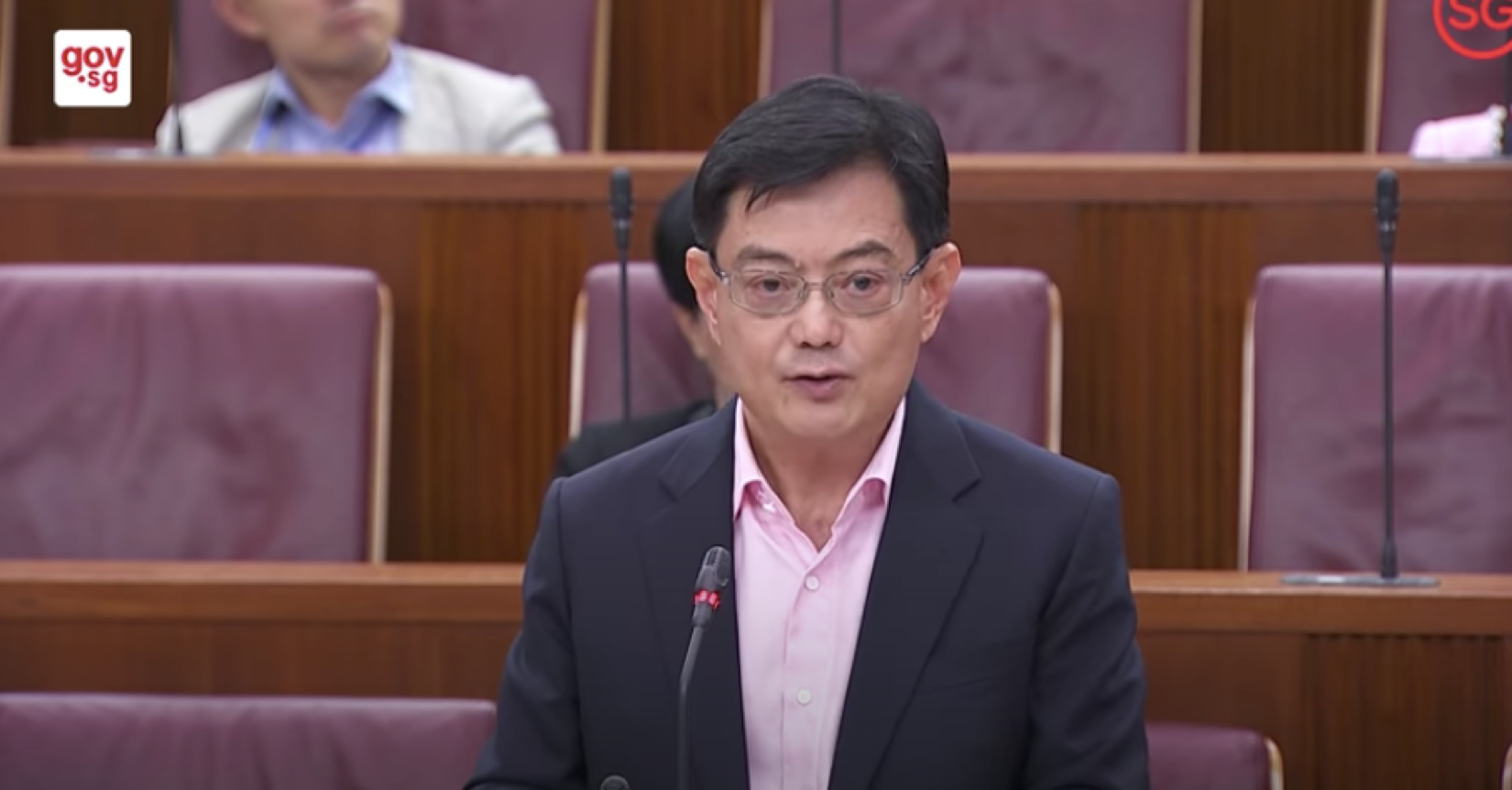I spent 3 years of my life negotiating CECA to get protections we needed: Heng Swee Keat
Heng also responded to Leong's questions about the Singapore's education system.
Ashley Tan |
Syahindah Ishak |
July 06, 2021, 08:13 PM
Deputy Prime Minister Heng Swee Keat had not yet weighed in on the debate.
However, the two Ministerial statements by Ong Ye Kung and Tan See Leng on Free Trade Agreements (FTAs) and the India-Singapore Comprehensive Economic Cooperation Agreement (CECA) involved subjects he was intimately familiar with.
A former Permanent Secretary for the Ministry of Trade and Industry, Heng had negotiated his fair share of FTAs -- including CECA.
Following a testy exchange between Ong, Tan and Leong Mun Wai of the Progress Singapore Party (PSP), Heng stepped up to share his own relevant personal experiences with negotiating the agreement.
Not a bargaining chip
Heng recalled his experience as permanent secretary, where he
led a negotiation team in 2003 to travel to India and discuss the terms for the CECA agreement.
Heng said that he was "terribly troubled by the way that PSP has taken this", and felt the need to address Leong's allegations that the 'Movement of Natural Persons' chapter in CECA provided Indian professionals a "free hand" to work in Singapore.
He emphasised that the chapter was an important one, but it was not used as a bargaining chip in negotiations.
Giving a brief recount of the history of Singapore's Free Trade Agreements (FTAs) and his own involvement, Heng said that he accompanied former Foreign Minister George Yeo to the Doha Round of trade negotiations in 2000.
However, Yeo accurately foresaw that the negotiations would not go far, and decided to pursue the country's very first FTA with New Zealand.
Despite other countries not being optimistic about the prospects of the agreement between the two small countries, Heng said they persisted and went on to do several other FTAs.
He added, "I was in the trenches, negotiating many agreements with our ASEAN counterparts..." Singapore then went on to negotiate FTAs with bigger countries such as Japan, Australia and the U.S., and more recently, the European Union.
Spent three years negotiating CECA
Heng also responded to Leong's question about what Singapore's bargaining chip was.
"The honest answer is very little," he said. Singapore only imposes tariffs on just three items — beer, stout and another alcoholic drink called samsu.
However, Heng added that the key quality to Singapore's public policy is to remain creative and adaptable to meeting the needs of other countries, who have their own list of concerns and priorities.
He continued that negotiations for CECA was not a smooth-sailing process, and it took him three years.
Heng once again highlighted that the agreement was extremely important, citing the large population numbers of India as compared to Singapore. "So we must have very strict agreements on this," he added.
The movement of natural persons was one of the chapters that were "the most difficult to conclude", because India was keen on it, but Heng said he "never let go", and the team got what it needed.
"Please be reasonable and don't mislead Singaporeans," he said, about Leong's claims.
Local talent
Leong had also questioned Singapore's education system and why it doesn't produce enough local talents for the needs of the economy.
In response to this, Heng, the former Education Minister, said that he is "extremely proud" of what the schools and Institutes of Higher Learning (IHLs) have done to develop and train Singaporeans.
Heng elaborated that the World Bank has ranked Singapore the best in the world at educating its people. Singapore also has six universities, as well as polytechnics and Institutes of Higher Education (ITEs) which provide "the most valuable practice-oriented learning".
He added:
Competition is important
Heng then emphasised that competition in Singapore is important for the country's growth, particularly in areas concerning innovation and technology. He explained:
Heng added that with Singapore's growing digitalisation, having the right policy can help Singapore cope with changes, remain open, maintain unity, and move forward.







